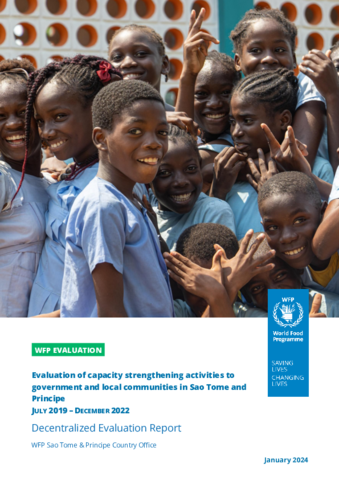
The evaluation had the dual objective of assessing the performance of the project (accountability) and learning valuable lessons for its future (learning).
The evaluation covered and applied mixed methods to six evaluation criteria.
Overarching evaluation questions included:
- To what extent does the intervention meet the needs and priorities of the government, stakeholders and affected populations? Relevance
- To what extent has the intervention achieved, or is expected to achieve, its objectives and outcomes? Effectiveness
- To what extent did the intervention achieve an optimal use of the budget and time allocated? Efficiency
- To what extent is the intervention appropriate/compatible with other interventions in a country, sector or institution? Coherence
- To what extent has the intervention generated or is expected to generate significant positive or negative effects, intended or unintended, at a higher level? Impact
- To what extent will the activities and achievements of the intervention be sustained in the long-term? Sustainability
Key evaluation conclusions included:
- WFP has an irreplaceable position within the donor community in the country, offering impactful and long-term solutions for the country’s development. WFP is shifting from a traditional operational role to a more transformative actor.
- The visibility of WFP’s work at the community level should be fortified to strengthen the narrative for new financing sources.
- Support of local production, value chains, and access to markets and smallholder farmers are key elements to ensure the long-term sustainability and self-reliance of the country by addressing these issues.
- Persistent, longer-term cooperation with the government is needed to ensure that the newly developed policies are applied and sufficient resources are allocated to the School Feeding Programme.
- Efforts are required to bolster PNASE's independence and sustained collaboration with smallholder farmers. Actively seeking synergies in new thematic areas, particularly those overlapping with smallholder initiatives, can mobilize additional financial resources, leading to long-term contributions aligning with national and global strategies.
Key recommendations from the evaluation included:
R1: Maintain the current strong position of WFP within the country and further reposition its role within the upcoming CSP period from operational to transformative development actor
R2: Review, adjust and strengthen country office internal capacities with perspective/in relation to more efficient implementation of CSP implementation management
R3: Ensure and periodically check the use and adoption of unified monitoring and implementation processes and intended strategic implementation of crosscutting issues and GEWE throughout whole CSP
R4: Ensure that following topics and approaches are actively adopted within the implementation of new CSP and when not directly targeted create intended opportunities and synergies for including and building upon them.
| Document | File |
|---|---|
| Evaluation brief (English) |
PDF | 316.57 KB
Download
|
| Evaluation brief (Portuguese) |
PDF | 314.62 KB
Download
|
| Post-hoc quality assessment |
PDF | 119.97 KB
Download
|
| Summary terms of reference (Portuguese) |
PDF | 117.44 KB
Download
|
| Summary terms of reference (English) |
PDF | 126.78 KB
Download
|
